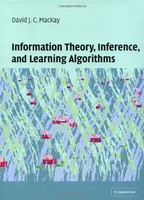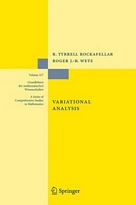
|
FreeComputerBooks.com
Links to Free Computer, Mathematics, Technical Books all over the World
|
|
- Title The Functional Analysis of Quantum Information Theory
- Author(s) Ved Prakash Gupta, Prabha Mandayam, V. S. Sunder
- Publisher: Springer (June 10, 2015); eBook (Final Draft, Arxiv.org, 2014)
- License(s): arXiv.org License
- Paperback 150 pages
- eBook PDF and PostScript
- Language: English
- ISBN-10: 3319167170
- ISBN-13: 978-3319167176
- Share This:

|
This book provides readers with a concise introduction to current studies on operator-algebras and their generalizations, operator spaces and operator systems, with a special focus on their application in Quantum Information Science.
This basic framework for the mathematical formulation of quantum information can be traced back to the mathematical work of John von Neumann, one of the pioneers of operator algebras, which forms the underpinning of most current mathematical treatments of the quantum theory, besides being one of the most dynamic areas of twentieth century Functional Analysis.
Today, von Neumann's foresight finds expression in the rapidly growing field of quantum information theory.
On the quantum information side, the book offers a rigorous treatment of quantifying entanglement in bipartite quantum systems, and moves on to review four different areas in which ideas from the theory of operator systems and operator algebras play a natural role: the issue of zero-error communication over quantum channels, the strong subadditivity property of quantum entropy, the different norms on quantum states and the corresponding induced norms on quantum channels, and, lastly, the applications of matrix-valued random variables in the quantum information setting.
About the Authors- N/A
- Physics
- Quantum Computing
- Information Theory and Systems
- Calculus and Mathematical Analysis
- Applied Mathematics
 Similar Books:
Similar Books:
-
 Information Theory, Inference and Learning Algorithms
Information Theory, Inference and Learning Algorithms
This textbook introduces Information Theory in tandem with applications, alongside practical communication systems, such as arithmetic coding for data compression and sparse-graph codes for error-correction.
-
 Foundations of Quantum Theory: Operator Algebras
Foundations of Quantum Theory: Operator Algebras
This book studies the foundations of quantum theory through its relationship to classical physics, includes comprehensive appendices on functional analysis and C*-algebras, as well as a briefer one on logic, category theory, and topos theory.
-
 The Physics of Quantum Mechanics (James Binney, et al.)
The Physics of Quantum Mechanics (James Binney, et al.)
This book aims to give students a good understanding of how Quantum Mechanics describes the material world. It shows that the theory follows naturally from the use of probability amplitudes to derive probabilities.
-
 Mathematical Methods in Quantum Mechanics (Gerald Teschl)
Mathematical Methods in Quantum Mechanics (Gerald Teschl)
This book is a brief, but self-contained, introduction to the mathematical methods of quantum mechanics, with a view towards applications to Schrodinger operators. Very clear and detailed way and supplements it by numerous exercises.
-
 Mathematical Foundations of Quantum Theory
Mathematical Foundations of Quantum Theory
This is a collection of lecture notes, all shared a common interest in answering quantum issues. The goal is to give a mathematically clear and self-containing explanation of the main concepts of the modern language of quantum theory.
-
 Variational Analysis (R. Tyrrell Rockafellar, et al)
Variational Analysis (R. Tyrrell Rockafellar, et al)
This book develops a unified framework and, in finite dimension, provides a detailed exposition of variational geometry and subdifferential calculus in their current forms beyond classical and convex analysis.





